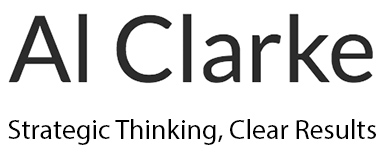‘The best things in life are free’ sang the Beatles, but the best things in PR are usually free and also simple. In fact one of the best PR campaigns in years proves this point. It was launched by the road haulage industry here in the UK as part of a fight for the survival of their livelihoods.
Kate Gibbs @RHANews at the Road Haulage Association (the people who deliver everything we eat drink and consume) sent me an email this week about their FairFuel campaign and after reading the background information, I started to reflect on this remarkable PR programme. You can read the full details of the campaign itself at the dedicated website (www.fairfueluk.com), but the headlines go like this
- Petrol and diesel powers everything we consume and use at some point
- Rising fuel costs means transport costs (and therefore the costs of the goods being transported) increase
- Higher prices mean fewer people purchase the goods for sale
- A global recession further reduces consumer demand
- The UK has the highest level of taxation on fuel
- The UK Government can make a difference by reducing fuel duty
- You can join the campaign to reduce fuel duty by signing a digital petition
The campaign issues are clear, the audience is the entire UK population, the messages are simple, the action required by the target groups are transparent and the measures of success unambiguous. Is this the perfect PR case study?
And the campaign has been developed and delivered through PR, not advertising.
- It embraces the latest opportunities available to lobby Government in the UK whereby 100,000 signatures on a petition can lead to the issue being debated in parliament.
- It uses a simple, clear website to focus the information – with social media integration.
- Supporters, both corporate and individual can interact and take action.
- It provides information and resources to enable easy onward action by supporters
- It is transparent in its purpose and progress
Since launch on 5 August 2011 the petition has attracted more than 86,000 signatures. The target is 100,000.
In my opinion this campaign will be looked on as one of the ‘all time greats’ because the team has managed to
– simplify a complex issue
– create a clear call to action
– engage and unite a wide range of stakeholders
– provide the tools needed to engage with the widest possible audience.
PR is a business process – Plan, Do, Check, Act – but with added creativity and (usually) delivered through third parties. This campaign is a great example and I hope it succeeds. We’ll know soon..
If you’re a UK resident you can sign the petition today. It took me less than 30 seconds, you need to leave your email address, home address and then click through a confirmation email. http://bit.ly/fuelpet
About Al Clarke – I am a marketing and communications specialist who has worked in the motor industry at board level since 1997. I have held senior positions in global brands such as Ferrari and the BBC including a decade working as a journalist.I am a member of the Institute of Directors, the Public Relations Consultants Association, an expert member of the digital community Smart Insights and Life President of the Motor Industry Public Affairs Association.I speak regularly in the field of marketing communications to businesses and the media with particular reference to digital media. Find me on Twitter @alclarkeltd and LinkedIn.


Comments 2
Thanks for the compliments. Its been a slog but we will never give up until the Gov see’s sense in motivating the economy not crushing it with high fuel duty. Keep signing up at http://bit.ly/FFUK-Gov and download the prospectus at http://www.fairfueluk.com/prospectus.html. We have to win this one!!!!
One fundamental requirement is to win over not only politicians but also the environmental lobby. Fair Fuel needs to persuade them to depart from the flawed assumption that lower fuel prices will lead people purchsing vehicles which are less fuel efficient, driving more and generating more traffic. As Fairfuel rightly suggests reducing petrol prices will put more money back in peoples pockets to spend and support the economy. If the government wish people to drive more efficient vehicles, then efficiency standards for new vehicles is a more effective tool than the Fuel Duty Escalator, which we all know is a flawed unsustainable.